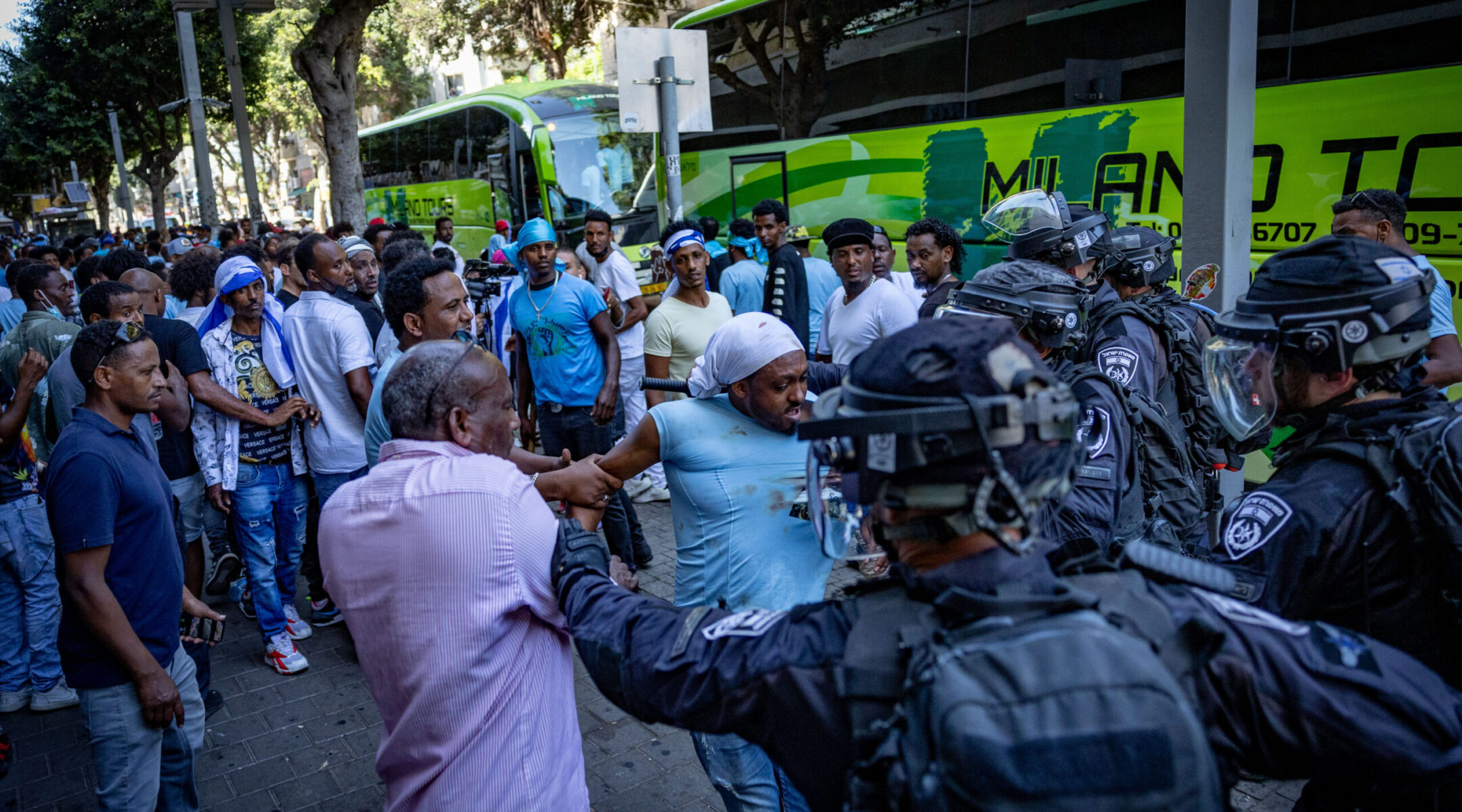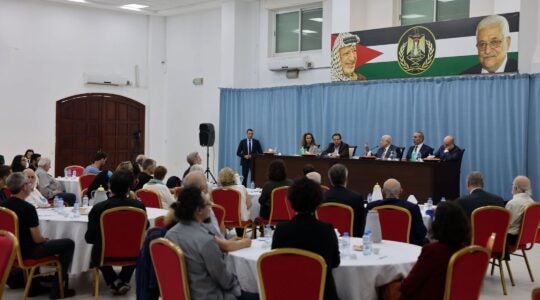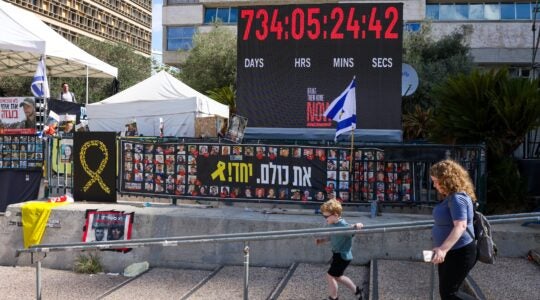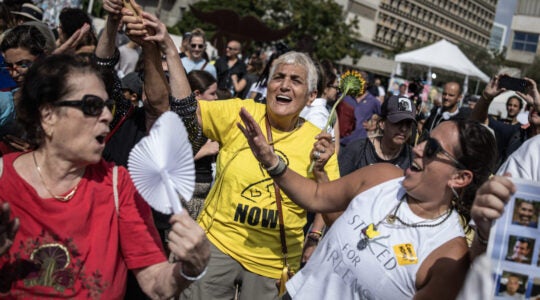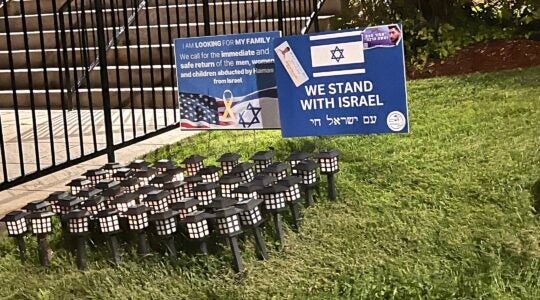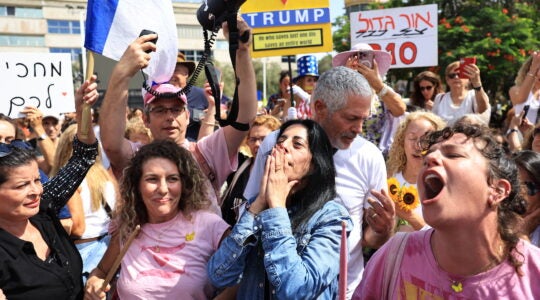(JTA) — Israeli Prime Minister Benjamin Netanyahu has asked his advisors to renew their efforts to eject African asylum seekers from the country following an explosive clash between rival Eritrean groups and police in Tel Aviv on Saturday.
The unrest occurred after opponents of the dictatorial regime of Eritrean President Isaias Afwerki protested an Eritrean embassy event in Tel Aviv. They derailed the event, damaged the building where it was held and clashed with supporters of the regime. Police officers struggled to restore calm, with some reportedly shooting their guns while seeking to quell the violence. In all, more than 170 people were injured in the incident, including 50 police officers, according to Israeli media reports. Some remained hospitalized on Sunday.
The incident is drawing attention to two different political dynamics within Israel: the political right’s longstanding antagonism toward African asylum seekers, and the question of who within Netanyahu’s current government has authority over security matters.
There are an estimated 30,000 African asylum seekers in Israel, most of whom came by land between 2007 and 2012 from Eritrea, an impoverished country where a 30-year dictatorship is widely considered among the most repressive in the world. The influx of migrants largely ended more than a decade ago, when Israel constructed a fence along its southern border.
How to handle those who arrived has been an unanswered question since. The asylum seekers say they were fleeing war and oppressive regimes and seeking a safe haven in Israel. Activist groups supporting them want to see them afforded treatment in accordance with international law regarding political refugees, and have decried efforts to oust them as discriminatory.
Netanyahu and his allies, on the other hand, have argued that they are economic migrants who came to Israel looking for work, and portray them as a threat to Israel’s Jewish character as well as to quality of life in southern Tel Aviv, the cluster of low-income neighborhoods where many of them live.
The government has declined to recognize the vast majority of them as refugees and refers to them as “infiltrators.” It has sought to deport them or urge them to leave the country voluntarily, something approximately half of the 60,000 who crossed the border have done. Previously, Netanyahu has overseen efforts to detain asylum seekers en masse or make it harder for them to work.
In 2018, following backlash from the right, Netanyahu canceled a deal he helped formulate that would have relocated about 16,000 of the asylum-seekers to other countries in exchanging for giving others permanent residency in Israel.
On X, the platform known until recently as Twitter, Netanyahu said on Sunday that the unrest in Tel Aviv on Saturday had “crossed a red line” and he would ramp up those efforts. In addition to increased efforts at deportation, a ministerial committee Netanyahu formed in the wake of the riots discussed revoking asylum seekers’ work permits and advancing a law on immigration.
“I am asking the team I convened today to prepare a complete and updated plan for the removal of all other illegal infiltrators from the State of Israel,” he wrote.
The incident has also renewed attention to security coordination within Netanyahu’s eight-month-old government, in which newly empowered far-right ministers have sought and won control over some law enforcement agencies. Sources told Haaretz that Tel Aviv’s new police chief, installed after his predecessor was pushed out by the far-right National Security Minister Itamar Ben-Gvir over his response to antigovernment protests, was unable to handle Saturday’s unrest and had to be relieved. He had not adequately prepared after receiving warnings that the protests could turn violent, the newspaper reported.
Hardline members of the government have publicly fought for months with leaders of Israel’s military and security establishment, whom they accuse of being too soft on protesters as well as Palestinian militants. On Sunday, Defense Minister Yoav Gallant shot back at those critics, saying they have made “outrageous statements that endanger the most important asset of the State of Israel, the Israel Defense Forces, according to the Times of Israel.
Following the riots, Ben-Gvir pressed for and won the right to hold many of the people arrested on Saturday in administrative detention, meaning that they could be held indefinitely without facing charges. Ben-Gvir has advocated for wider use of the form of detention, which Israel has been criticized for using on Palestinians accused of terrorism, as a tool to combat violence, crime and unrest. “Vandalism in Africa, not here,” he tweeted on Sunday.
Ben-Gvir visited the South Tel Aviv scene of the unrest and faced jeering from people there on Sunday, the Times of Israel reported. He said he would support any officer who fired a gun in self defense during Saturday’s unrest.
JTA has documented Jewish history in real-time for over a century. Keep our journalism strong by joining us in supporting independent, award-winning reporting.
